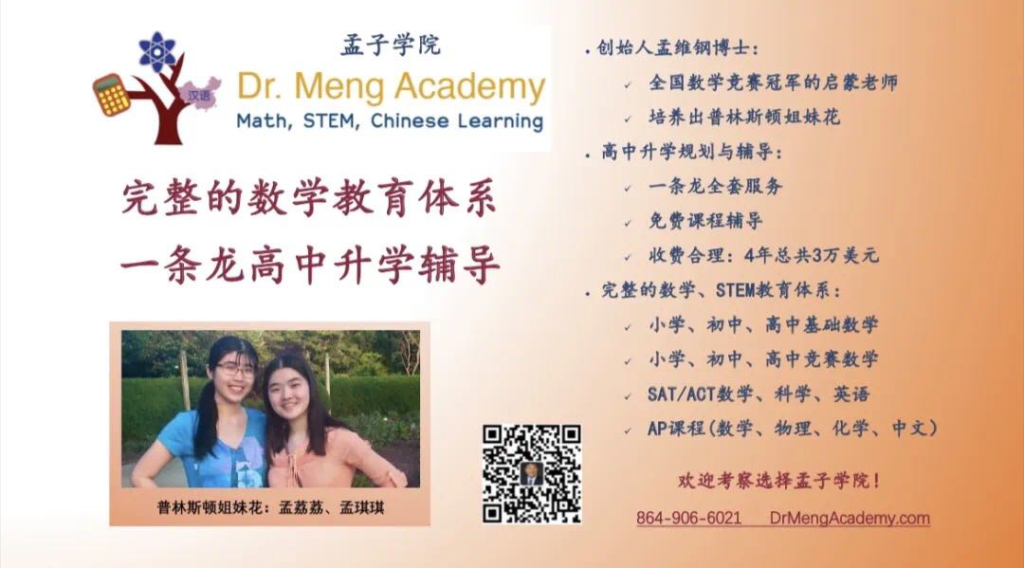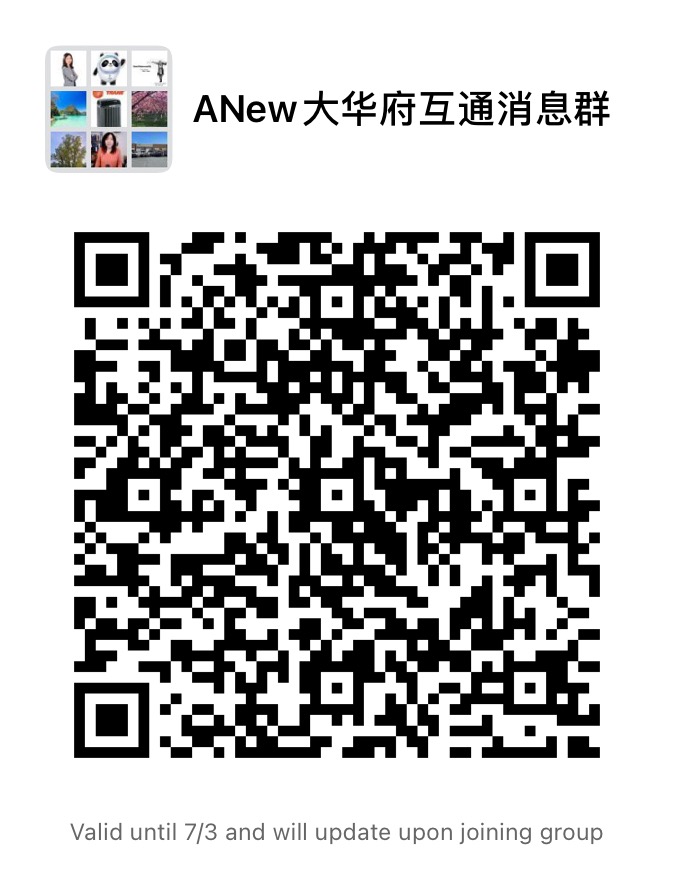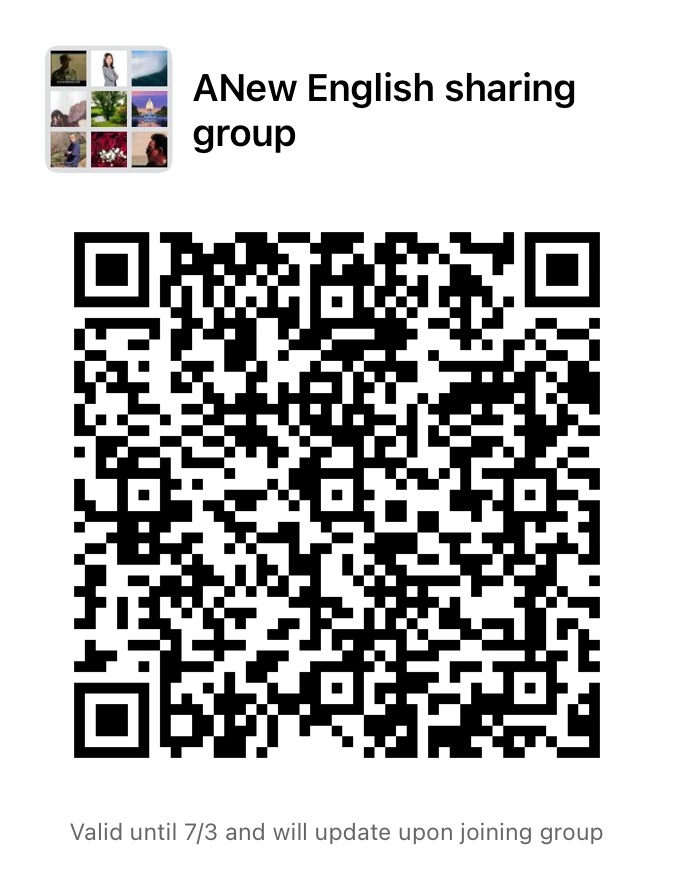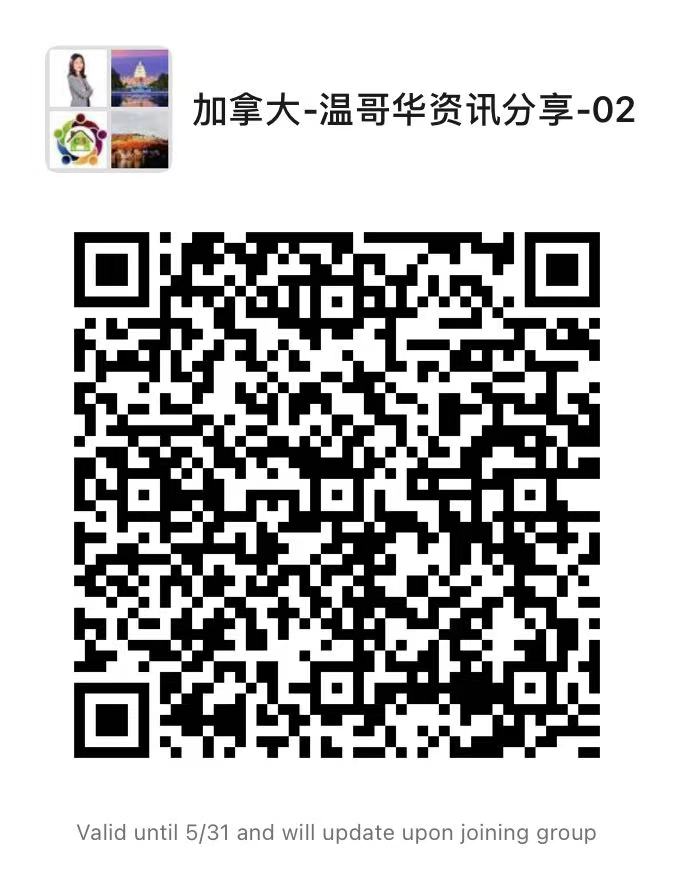
The Education Department is creating a parent council to help them better engage in their children’s schools – a move that comes as Republicans tap into parents’ frustrations over a third year of pandemic schooling and threaten to unseat Democrats as the party of education ahead of the midterm elections.
READ: Feds Work to Boost Parent Involvement ]
“Parents are a child’s first teachers and there’s no one better equipped to work with schools and educators to identify what students need to recover,” Education Secretary Miguel Cardona said in a statement.
“The National Parents and Families Engagement Council will serve as an important link between families and caregivers, education advocates and their school communities,” he said. “The Council will help foster a collaborative environment where we can work together to serve the best interest of students and ensure they have the academic and mental health support they need to recover from the pandemic and thrive in the future.”
The council consists of 14 organizations that represent families, parents and caregivers of all backgrounds, including the more traditional umbrella groups, like the National Parent Teacher Association, as well as groups like Mocha Moms, Fathers Incorporated and the National Parents Union. The organizations will also represent parents and caregivers whose children are enrolled across the entire K-12 system, including in public schools, charter schools, private schools and homeschool.
The most pressing issue the council will focus on, according to department officials, is to outline how parents can better understand the rights they have in their children’s education as it relates to shaping how schools and districts use federal COVID-19 relief funds, including for summer learning.
“Parents provide critical perspective, and they should always have a seat at the table whenever decisions are made that impact their children,” says Anna King, president of National Parent Teacher Association. “And this is more important than ever in the effort to help students recover from the COVID-19 pandemic.”
Department officials said the first meeting would occur in the “coming weeks,” where representatives from the organizations will discuss how their children are recovering from the pandemic, the different ways schools are providing academic, mental health and social and emotional support, and how they can best engage with schools.
The Biden administration – and Cardona, in particular – has been making a point to elevate the role parents play in their children’s education in the wake of last year’s off-year elections, which exposed mounting frustrations among parents exasperated amid a third year of pandemic schooling and highlighted the inroads Republicans have made in branding themselves as trustworthy on an issue long considered a Democratic stronghold.
This fall, when parents swamped school board meetings, put in motion a record-setting number of school board recalls and made education the No. 1 issue in the Virginia governor’s race.

READ: Educators Report Highest Level of Burnout Among All Other Industries ]
“I’m not going to let parents come into schools and actually take books out and make their own decision,” Virginia’s former Democratic Gov. Terry McAuliffe said during a debate against Republican Glen Younkin. “I don’t think parents should be telling schools what they should teach.”
The unforced error, which many say cost McAuliffe the race, still haunts Democrats, who in the aftermath of the off-year election were quick to admit they needed to find a way to show parents that their input does matter.
“You cannot tell a group of people who have had, for 18 months or so, to have to home-school their children that their opinion about their children’s education doesn’t matter,” Rep. Donald McEachin, Virginia Democrat, said in the wake of McAuliffe’s loss.
National polls show trust in Democrats on education issues has shrunk from a 20-point advantage in the beginning of 2021, to a mere 7-point advantage earlier this year. And a poll of Virginia voters conducted after November’s election by Democrats for Education Reform and Murmuration – the company that provided polling for the Biden-Harris ticket – showed that of voters who ranked education as a top issue, 70% voted for Youngkin. Pollsters said the findings represent “a concerning trend for Democrats – once the party of education – who have ceded ground to Republicans on the issue.”
With the 2022 midterms on the horizon, Republicans have latched on to what they consider a powerful and energizing issue, with conservatives in Congress introducing “Parents Bill of Rights” legislation that would allow parents to know exactly what their children are being taught, and GOP governors and Republican-controlled states legislators considering bills that would elevate the role of parents.
“We think the secretary really needs to hear directly from parents,” says Keri Rodrigues, president and co-founder of the National Parents Union. “Really the pain, the struggle, the anxieties and some of the triumphs they are experiencing on the ground. We’ve been pushing, pushing, pushing for this.”

“We’ve tried to make sure that he’s not just hearing from the window dressing parents – the ones who are prepped to say the right thing and won’t make the superintendent look bad,” she says. “But the folks who do the real work in the community.”
Rodrigues, who says she’s tried to be intentional about including the voices of indigenous parents, foster parents, grandparents who are primary caregivers, parents who have were incarcerated and LGBTQ parents, says she talks or meets with department officials at least twice a month and that they’ve been “extremely active” in ensuring parents and families are included in major initiatives.
“It makes me really happy to see all these folks represented because typically you have that one group who is always called upon to be the voice of parents and it’s really not intersectional enough for this moment,” she says.
Yet Rodrigues says she plans on expressing to Cardona some hard truths and would like to see the department, among other things, establish a federal definition of “parent and family engagement” – something measurable that the department can hold districts and states accountable to.
“This is what I said to them when they invited us to join: We are excited to be joining the council, but don’t expect us to be dazzled by the conversation,” Rodrigues says. “We are going to come and have very truthful and very courageous conversations and say the things that need to be said at that table.”
“It’s what the department needs to hear, it’s what Secretary Cardona needs to hear and it’s what President Biden needs to hear in this moment.”

More Than a Third of Students Had Poor Mental Health During the Pandemic
New government analyses are providing a comprehensive and troubling snapshot of the mental health of America’s youth during the COVID-19 pandemic.
[ READ: A Pandemic Push for Better Mental Health Care ]
One analysis of data from a nationally representative survey of high school students taken during the first half of 2021 shows that 37% of students reported experiencing poor mental health either most of the time or always during the pandemic, with more than 31% of students reporting being in such a state during the past 30 days.
More than 44% students also reported feeling persistently sad or hopeless within the past year, with nearly 20% saying they’d seriously considered attempting suicide and 9% attempting suicide in that time period.
Notably, feeling connected with others at school appeared to be a significant factor in whether students reported experiencing poor mental health. The study found approximately 47% of youth surveyed reported feeling close to people at their school. Among those students, 28% reported poor mental health during the pandemic compared with 45% who did not agree that they felt close to others at school.
Also, 35% of youth who reported feeling connected to others at school reported persistent feelings of sadness or hopelessness compared with 53% of their counterparts. Only 14% of those feeling connected during the pandemic reported they considered attempting suicide versus 26% who did not report feeling connected, while 6% of those who felt connected reported attempting suicide compared with 12% of students who did not report such social ties.
Similar disparities in mental health outcomes occurred between students who reported being more connected to others, including family and friends, through a device like a phone or computer, and those who were less virtually connected.
“Comprehensive strategies that improve connections with others at home, in the community, and at school might foster improved mental health among youths during and after the pandemic,” researchers wrote.
[READ: Mental Health Help and COVID-19 ]
A particularly large disparity in mental health status reported was between heterosexual students and those who identified as lesbian, gay or bisexual. More than three-quarters of lesbian, gay and bisexual high school students reported having persistent feelings of sadness and hopelessness compared with 37% of students who identified as heterosexual, the study found. More than a quarter of gay, lesbian and bisexual students also reported attempting suicide in the past 12 months, compared with just 5% of heterosexual students.
The analysis was one of several studies published Thursday by the Centers for Disease Control and Prevention that examined adolescent behaviors and experiences in light of the COVID-19 pandemic.
“These data echo a cry for help,” Dr. Debra Houry, the CDC’s acting principal deputy director, said in a statement. “The COVID-19 pandemic has created traumatic stressors that have the potential to further erode students’ mental well-being. Our research shows that surrounding youth with the proper support can reverse these trends and help our youth now and in the future.”
A companion analysis published Thursday also found that more than half of students reported experiencing emotional abuse by a parent or other adult in the home during the pandemic – such as being insulted or sworn at – while 11% reported they were physically abused. Approximately 29% experienced a parent or adult in their home losing a job amid the pandemic.
Additional findings showed that about 1 in 3 students who had ever used alcohol or an illicit drug reported using such substances more during the pandemic, and that approximately one-third of students reported being treated badly or unfairly in school due to their race or ethnicity in their lifetime. Two-thirds of Asian students and more than half of both Black and multiracial students reported what researchers called “perceived racism.”
[ MORE: Talk About Suicide to Stop Suicide ]
The new findings offer additional evidence pointing to worsening youth mental health. Data predating the pandemic, for example, indicates persistent feelings of sadness and hopelessness among high school students increased by more than 40% from 2009 to 2019.
“This data and others like it show us that young people and their families have been under incredible levels of stress during the pandemic,” Kathleen Ethier, director of the CDC’s Division of Adolescent and School Health, said in a call with reporters. “Our data exposes cracks and uncovers an important layer of insight into the extreme disruptions that some youth have encountered during the pandemic.”
Dr. Jonathan Mermin, director of the National Center for HIV, Viral Hepatitis, STD, and TB Prevention, said the pandemic’s impact on youth mental health will be felt well after the pandemic itself is over.
“Together,” he said, “we can mitigate its negative effects, increase health equity, and create a healthier future for all youth.”
中美教育资源互通交流群
·分享家庭教育金律、亲子陪伴新理念
如何应对青春期叛逆?
面对孩子早恋怎么办?
如何引导孩子应对失败?
如何提升学习注意力?
内向性格怎样走向成功?
养儿养女的教养方式有何不同?
·分享美国中小学课内外教育资源
·探讨美国社会有争议的教育问题,关注亚裔青少年成成才

请扫码添加群主,验证家长身份后入群
(闲杂人等勿扰)
300多万人选修耶鲁“幸福课”,他们学到了什么
MOLLY OSWAKS
耶鲁大学幸福课的正式名称是“心理157:心理学与美好生活”(Psyc 157: Psychology and the Good Life),它是该校320年历史上最受欢迎的课程之一。
这门课只在2018年春季学期进行过一次现场授课,是在校园内最大的空间里作为一个1200人的讲座课程。
同年3月,通过Coursera向公众提供的为期10周、名为“幸福的科学”的免费版本也立即流行起来,吸引了数十万在线学习者。但当去年3月防疫封锁开始时,也是该在线课程开始整整两年之后,选修它的人数激增。据该网站称,到目前为止,已有超过330万人注册。
“我们选修这门课的人数增加了八倍,”耶鲁大学西利曼学院(Silliman College)院长、心理学教授劳里·桑托斯(Laurie Santos)谈到这门课在大流行时期的受欢迎程度时说。
“每个人都知道应该做什么来保护自己的身体健康:洗手,保持社交距离,戴口罩,”她还说。“人们在纠结应该怎样保护自己的心理健康。”
Coursera的课程改编自桑托斯在耶鲁大学教授的一门课程。它要求学生记录自己的睡眠规律、写感恩日记、随机做一些好事,并记录随着时间的推移,这些行为是否与自身总体情绪的积极变化相关。

34岁的格雷琴·麦金太尔(Gretchen McIntire)是马萨诸塞州的一名家庭健康助理,她正在通过南新罕布什尔大学(Southern New Hampshire University)的一个在线项目攻读心理学学士学位。去年8月,麦金太尔利用封锁期间的空闲时间上了这门课。她称这是“改变人生”的课。
Coursera课程的实用性吸引了麦金太尔,她在23岁时得知自己患有阿斯伯格综合征。作为一个夜猫子,她一直为睡眠和坚持自己给自己制定的时间限制而苦恼。
“有时很难给自己设定界限,说,‘我知道这本书很有趣,但可以等到明天,睡觉更重要。’”她说。“这是纪律,对吧?但我从来没有按这种方式做过,就是‘这样会让你更快乐。它不仅对你有好处;它会真正地让你更快乐。’”
她说,她发现每天进行冥想练习很有帮助,甚至在课程结束后也坚持了下来。冥想还帮助她摆脱了社交媒体。
“我发现自己在观照内心。这让我变得更加内省,”她说。“老实说,这是我做过的最好的一件事。(她后来重新下载了自己的社交应用,包括Facebook Messenger,立刻感到不堪重负。)
特蕾西·摩根(Tracy Morgan)是加拿大阿尔伯塔省高河市鲍勃·斯诺格拉斯娱乐中心(Bob Snodgrass Recreation Complex)的一名计划主管。去年6月,在和丈夫与孩子们在一起被封锁期间,她选修了这门课程。
“我没有理由不快乐,”她说。“我的婚姻很美满。我有两个孩子。我有一份好工作和一个好房子。可我就是永远也找不到幸福。”
自从上了这个课程后,52岁的摩根承诺每天做三件事:练习一小时瑜伽;不管阿尔伯塔省有多冷,都要到户外的大自然中去散步;睡觉前在感恩日记里写三到五件事。
“当你开始在一天结束时写下这些事情时,你只会在一天结束时想它,但是一旦你把它变成一种习惯,你就会开始一整天都在想它,”她说。
一些研究表明,寻找感恩的理由可以增加整体幸福感。
37岁的埃瓦·西普拉(Ewa Szypula)是英国诺丁汉大学(University of Nottingham)法语研究讲师,她说,自从几年前攻读博士学位以来,她一直对自我提升的技巧感兴趣。她说:“在博士第二年或第三年的某个时候,你确实会感到有些倦怠,你需要一些应对策略。”
桑托斯的课程中有一项小研究让她很难忘,632名参与研究的美国人得到的问题是,如果给他们五美元,那么这笔钱怎样使用会让他们更幸福,是花在自己身上,还是花在别人身上。研究中,受试者预测把钱留给自己会更幸福。但此后不断有受试者报告,说他们在把钱用在别人身上时感受到了更大的满足。
西普拉有机会以她姐妹的生日为一项应用实验,将她刚学到的知识用起来。她没有把自己买的一条昂贵的裙子留下来,而是给了她的姐妹。
“那种幸福感几个月后还在,”她说。

并非班上的每一个学生都感受到了改变。21岁的耶鲁大四学生迈特·纳德尔(Matt Nadel)是2018年参加了那次校园实体授课的1200名学生之一。他说2017年秋刚刚入学时,耶鲁的严苛让他适应起来很吃力。
“我知道睡觉是好事。我知道我的分数跟长期的幸福无关,光是有好分数并不能让我成为一个更开心、更好的人,”他说。“但这堂课给我的人生造成了什么深远而切实的影响吗?答案是没有。”
课虽然没有改变他的人生,但纳德尔说,他现在会更乐于去表达感恩。“这很好,”他说。“但也就仅此而已。”
22岁的克齐·瓦楚库(Kezie Nwachukwu)也上了实体课。他也不觉得有什么惊天动地的变化,不过还是在这个课程中发现了一些长远的价值。
自称是基督徒的瓦楚库说,他的最重要收获是学到了信仰和社区在幸福中的重要性。
“我想我当时是在努力调和自己的宗教信仰,并在理智上反思它,”他说。“同时承认我只是很喜欢和这样的社区相处,我认为是他们造就了我。”
相关报道
- 耶鲁史上最受欢迎课程:快乐2018年1月31日
- 金钱可以买来幸福,但也是负担2018年9月28日
- 想过得更幸福?移民去芬兰吧2018年3月15日
- 帮你提升幸福感的4件小事2017年11月29日
- 哈佛的研究找到幸福生活的秘密2016年4月4日
改变人生?不算。但他说这无疑是一种对人生的确认。
“这个课程让我对自己既有的宗教信仰更有把握也更舒适了,”瓦楚库说。
还有一个心得是负面可视化的价值。意思是要去思考生活中一个好东西(比如你那间漂亮而且价格公道的公寓),然后去设想最糟糕的场景(突然发现自己无家可归,没有福利保障)。如果说感恩不是与生俱来的情感,那么负面可视化可以帮你做到感恩。
“这方面我是非常注意的,尤其是当我觉得我的思绪被困在了对未来困难的思考中时,”瓦楚库说。“我应该感激我所拥有的一切。因为你本来是不会去注意这些的。”

警惕“我孩子不会吧”的想法—如何跟孩子谈论色情片?
作者:DEREK ABELLA
《纽约时报》专栏作家纪思道(Nicholas Kristof)近期对Pornhub上儿童性虐待视频的报道,可能会让许多家长在想,他们的孩子是否会在
Pornhub或其他色情网站上看视频。而有的家长也许会为孩子观看性侵和强奸视频、要求他人发送或自己把性露骨的自拍发给别人的可能性感到震惊。
所有孩子都会看到色情片,一些年纪比父母预期小得多的孩子还会定期去搜寻色情片。要警惕“我孩子不这样”的想法。在作为一名性教育老师和国家亲密关系咨询专家的经历中,我会与许多孩子谈论性。没看过性暴露媒体的青少年是很少见的——一些人甚至在初吻前就看过了。
这里是一些可以纳入考量的谈话要点和指南。
我如何开启这个话题?
在你开始与孩子谈论这个话题时,要好好考虑你想让他们思考、学习和了解关于性和亲密行为的哪些方面。
好好想想你传达出的信息是关于色情,还是关于性的。正如纪思道写的那样,“性积极和不上Pornhub理应是可以兼得的。
”对于10岁以下那些年纪更小的孩子,“如果我们希望孩子对性的理解是和人与人那种亲密性有关,我们就必须谈论身体和情感亲密性之间彼此是如何息息相关的这一点,”《先和我聊聊:想让孩子一有性方面的问题就会想到来找你,你需要知道这些》(Talk to Me First: Everything You Need to Know to Become Your Kids’ ‘Go-To’ Person About Sex)一书的作者黛博拉·罗夫曼(Deborah Roffman)说。
她建议与孩子谈谈“依偎在一起,还有这种行为带来的美好感觉——这能帮助他们感到安全、被爱和受到保护。在色情片语境里的这一身体接触则是这一概念的反面。”
在电子设备上设置好家长控制(parental controls)也很重要,这有助于不让孩子意外看到令人不安的东西。
对于那些在初中的孩子,我会给出明确的比喻,来阐明观点:色情片不是性的准确呈现,也绝对不是性亲密的准确呈现。我会告诉我的学生,“有时候人们会想要通过色情片学习关于性的知识,但那样的话就像是看《速度与激情》(The Fast and the Furious)学开车一样。”然后,我们会看《速度与激情》的预告片,探讨一些这样的问题:谁会受到这样开车的影响?后果是什么?是什么让它具有观赏娱乐性?它与现实有什么不同?
这些对话帮助我的学生了解到,就像是影片中的开车场面一样,色情片创造出来的性形象是极度戏剧化,甚至是夸张的,真实生活的体验可能非常不一样。
要尝试以开放、诚恳,不带评判、羞辱或下最后通牒的态度与你的青少年孩子谈。要选择一个私下、比较轻松的时机,像是乘车的时候(因为大家眼睛都看着前面而不是对方,所以能让人觉得没那么过分亲密)或是散步或爬山的时候(因为这是一个有相同目标的活动和行动),或是在一家人看完电影之后的深夜(孩子都很聪明,他们知道大人这时候一般很累,会少说多聆听)。
这应该是一系列对话的开始,而不是仅此一次的说教。要用开放式的“如何”以及“什么”这样的问题,比如“你觉得青少年为什么看色情片?”或是“你怎么看待色情片对人们现实生活中关系的影响?”,让他们做自己经历的专家,以他们观察到的事物以及对这个话题的思考作为开始,而不是强迫他们告诉你他们看色情片的经历。
如果我的孩子感到丢脸怎么办?
对于和你谈论色情片以及任何与性相关的话题,你青少年孩子很可能会有所抵触。但就算他们看上去不想听,你聊起这个问题,确保你的孩子能了解他们所需的重要信息是很重要的。
得不到回应,不一定就意味着你的孩子没有在聆听。比如,你可以说“我一直都想和你聊聊色情片,但没找到机会,所以我打算和你分享一些我觉得重要的信息”。如果你遭遇抵触,可以接着这么说,“我知道这很尴尬,很难。我也这么觉得。我也知道这可能和你没什么关系,但它在我们的文化里如此普遍,所以我想确保你了解关于色情片和健康关系的一些重要信息。”
我的孩子需要知道些什么?
作为你们对话的一部分,即便是单方面的,囊括以下信息也很重要:
色情片是他人的幻想,并不是你自己的想象,也并不是大多数人真实性经历和安全性行为的的反映。
色情片是个娱乐产品,基本上是由什么会畅销、什么能盈利驱动的。
表演人员的身体通常经过了修改和增强,目的是为了打造某种特定形象。
这些模特是被雇佣来表演的,所以很可能它是合同规定的产物,而不是双方知情同意的产物。
色情片一点也不私人。隐私是一段性关系里的健康组成部分。
你所看到的东西在许多层面上都很不现实。比如,一场10分钟的性场面可能会花费好几个小时拍摄。演员们往往会用勃起增强剂来保证生理兴奋不减。如果一个场面拍出来效果不如预期,他们就会再拍一次。在拍完之后再剪辑能创造某种特定的呈现。
如果我的孩子给别人发过裸照怎么办?
18岁以下的孩子要求他人发送、自己拍,自己发出或是收到裸照都较为常见,但这么做会带来实际的后果。即便是你拍摄和发送的是自己的照片,联邦政府还是会将这种做法视为儿童色情里的交易。请自行了解联邦政府在色情片方面的法规,以及你所在的州关于青少年发送色情信息方面的规定。
如果你的孩子告诉了你发裸照的事情,要尽可能保持冷静,按耐住想要质问、羞辱或责备受害者的冲动。你可以这么说,“我很高兴你来告诉我这件事。”把关注点放在那个打破与你孩子之间的信任、与他人分享或将这些照片发上网的人。
当裸照在没有得到同意的情况下被发上网,他们可能会有一种亲身遭遇侵害的感觉。这可能会给人带来毁灭性的打击。问问你的孩子想分享哪些故事。要记住遭到虐待会让人失去力量。我们会希望幸存者在自己摸索的过程中,感到自己掌握自主权。用开放式的问题和他们感到舒适的程度来引导对话。通过提供像是治疗性咨询或向执法部门报警的选项,赋予他们自己做决定的权利。
我能如何提供帮助?
作为一名家长,你一直在教授孩子生活各方面的价值观。与孩子谈论一下在一个性语境里,互相尊重具体看起来、听起来、感受起来是什么样子的。强调性关系可以既包括情感上,也包括身体上的亲密,以及这种关系通常同时包括浪漫感觉和性吸引力的这几点很重要。
在愉快性经验应该看上去、听起来、感受起来是什么样的这些方面,在生活中没有成年人给予指导的情况下,孩子们是跟着他们在屏幕上看到的描绘行事的。要确保你给他们提供关于性方面年龄适宜、医学上准确的信息,以及在如何将这些信息运用到他们的亲密关系上提供指导。鼓励你的孩子自我定义性别,以免刻板印象塑造他们的行为,在社交和性情境里做到冷静勇敢。
要提醒他们,对伴侣双方来说,在性方面的探索发现是好事,令人激动人心且有趣的。最重要的是,要强调性并非表演,而是一个感受的过程。

作为亚裔学生就读纽约精英高中,是一种什么样的体验
清晨,现年17岁、出身孟加拉移民家庭的塔乌希法·哈克离开在布朗克斯的住所,搭乘往南的高架线去布鲁克林,这段路要花一个半小时。
在那里,她将和一群同龄人一起走进布鲁克林技术高中,人群中有孟加拉人和藏人,埃及人和华人,锡兰人和俄罗斯人,多米尼加人和波多黎各人,还有西印度群岛人和非裔美国人。这座高大的八层楼建筑容纳有大约5850名学生,这是美国规模最大、治学最严的高中之一。
她的父亲是出租车司机;母亲是快餐厅服务员。这座学校承载着她和他们的梦想。“这是我的最佳机会,”塔乌希法说。“我脱身的希望。”
但同时,布鲁克林技术高中也一直受到诟病,被认为需要进行深刻改革,这种呼声还针对国内其他通过考试择优录取的公立高中。

自由派政治人物、学校领导人和组织者认为,这样的学校是精英主义堡垒,而且由于黑人和拉丁裔学生入学率低,它们实际上具有种族歧视和种族隔离性质。纽约市公立学校中黑人和拉丁裔占63%,而在布鲁克林技术高中学生中只占15%。
对亚裔学生来说,这个比例是反过来的:他们在布鲁克林技术高中占了61%,但在公立学校总人数中只占18%。
有批评者暗示,南亚和东亚以及白人学生较多的情况突显了这种不公正。类似的指控在几年前曾导致一场激烈争执,当时一名地位显赫的白人自由派委员会成员说,这类学校亟待一场“种族清算”。
去年离任的前纽约教育局长理查德·卡兰扎发出了更尖刻的声音。“我就是没法接受这种说法,”他说,“那就是这些学校的入学可以被某一个族群霸占。”
然而通过对布鲁克林技术高中多位亚裔和黑人学生的深度采访,可以看到事情没那么简单,并且往往并不符合纽约乃至全国常见的政治刻画。这些学生谈及各自的个人旅程与挣扎,与外界想象中的一场围绕学校未来展开的激烈争斗相去甚远。
他们发出的批评往往显得锐利而深刻,大多数亚裔学生表示希望有更多黑人和拉丁裔同学。
布鲁克林技术高中有整整63%的学生被划定为特困生。人口普查数据显示,亚裔的收入中位数在纽约市是最低的,多数学生在家说英语以外的语言。

关于入学的争论远不限于纽约的择优录取高中。
旧金山教育委员会已经废除了洛威尔高中的择优录取政策,代之以摇号机制,这座极具声望的学校有55%的学生属于亚裔。“当我们在谈论择优、英才教育,尤其是基于标准化考试的英才教育时,”一位委员会成员认为,“那就是种族歧视制度。”
弗吉尼亚州费尔法克斯县官员取消了托马斯·杰弗逊技术高中的入学考试,改用成绩和社会经济条件结合的标准。次年,黑人和拉丁裔学生占比大幅提升,亚裔学生占比下降,该地区的亚裔相比纽约而言更偏向中产、上中产阶层。白人学生录取也增多了。
当亚裔家长提起诉讼时,一名联邦法官告诉他们的律师,“每个人都知道这项政策不是种族中立的,它的目的是影响种族构成。”
该案正在等待裁决。

布鲁克林技术高中坐落在格林堡高级褐石社区,该校被视为纽约市教育皇冠上的一颗钻石。
这所学校有很多优势,大多数学生都很清楚。然而,几乎所有的人都对将其描述为一所种族隔离的学校的说法表示异议,尤其是因为“亚裔”这个词包含了不同的种族、文化、语言和肤色。
陶西法看着从布鲁克林技术高中大门涌入的形形色色的学生,她表示很困惑,一所四分之三的学生是非白人的学校竟然会被描述为一个种族隔离的地方。“在我的课堂上,有各种人口结构和肤色的学生,还有说不同语言的朋友,”她说。“说这是种族隔离是不合理的。
”关于入学考试的争论
批评特殊高中的人认为,这些机构与时代精神和教育实践脱节。他们认为,与其把尖子生集中在一起,不如抛开标准化考试,在社区的高中里建立多样性的班级。他们说,一些研究表明,在学业上吃力的学生能从有才华的优秀学生身上获益。此外,入学考试助长了不公平的私教产业的发展。
支持特殊高中的人援引那些成为顶尖科学家的校友为例。除了少数例外,那些孩子都来自工人阶级和移民家庭。他们认为,最好的学生应该在头脑和好奇心的驱使下努力学习。
他们还说,市长和学校官员管理着一个有110万学生的系统,其中只有一半的学生精通数学,24%的黑人学生未能毕业。当美国人在科学、技术和数学领域努力保持与其他国家的竞争力时,为什么要纠结少数几所只拥有6%高中生的优秀学校犯有反平等主义罪恶?
尽管如此,这些高中的黑人和拉丁裔学生数量的减少是一个大问题,也是一个谜。纽约市长白思豪表示,问题的核心在于入学考试存在偏见。

这与历史不符。几十年前,当犯罪和社会经济状况远比今天严重时,黑人和拉丁裔青少年通过考试的人数很多。1981年,布鲁克林技术高中近三分之二的学生是黑人和拉丁裔,这一比例在接下来的十年里一直徘徊在50%。
布朗克斯科学高中的黑人和拉丁裔学生占学生总数的10%;这一比例在上世纪七八十年代是两倍以上。
要理解这种下降,需要回顾几十年来的政策选择,在反分班运动的推动下,市政府官员取消了快班和荣誉班级,并试图改革英才课程,尤其是在非白人地区。
布鲁克林技术高中的黑人校友认为,这一具有进步思想的运动恰恰妨碍了最有可能通过考试的黑人和拉丁裔学生。一些以黑人和拉丁裔为主的贫困地区现在缺乏一个英才课程。
全市小学英才班招收了约1.6万名学生,其中75%是白人和亚裔。
进入和留下
参观者走进布鲁克林技术高中,可以看到去年毕业班的优秀生名单,上面的姓氏像是一个古老故事的不同变体:有董、杜根、戈耶、黄、苏巴、韦。
这些特殊高中是移民和工薪阶层青少年的港湾和灯塔。20世纪五六十年代,大屠杀幸存者和西印度群岛家庭来到这里。后来,来自亚洲和西非的人潮滚滚而来。
28岁的哈西巴·哈克住在布鲁克林肯辛顿一个被称为“小孟加拉”的低矮社区。她的父母在孟加拉湾的一个小岛上长大。在她上学时,她的父亲是一名出租车司机。她在富裕的公园坡地区上中学。
11岁的时候,她的家人和邻居都在谈论高中考试的事。父母为她在一个辅导中心报了名,这是一个严格的训练营,由来自特殊高中的亚裔青少年教师组成。学费是4000美元。她父母讨价还价,但仍付了一大笔钱。
“每个周末都是这样,整个夏天都在上课,”现年28岁的哈克说,她如今是TED演讲的制作人。“邻里所有人都知道轮到你参加考试了。”
“这比上大学还难,”毕业于福特汉姆大学的哈克说。“那是一种努力奋斗的文化。”
民间观点认为,南亚人主导了考试,但现实情况要复杂得多。在她的辅导班上,很多学生都没有达到要求,父母和孩子会一起哭。一些学生退学了。
去年有超过2.35万名青少年参加了特殊高中考试。大约41%是黑人和拉丁裔,34%是亚裔。
考试可能存在问题,因为它需要代数知识,而很多中学生并不具备这方面的知识。哈克很幸运地学习了那门课程。来自布朗克斯的陶西法却没有。如果她的父母没有花钱给她上辅导课,在那一部分考试时她就会变得茫然失措。
陶西法的一些中学同学毫无机会。“我有一个非常聪明的黑人同学,他甚至没有意识到还有考试,”她说。“就是存在不公平的优势。”
Source: https://cn.nytimes.com/usa/20220128/selective-high-schools-brooklyn-tech/?_ga=2.175051937.243015091.1652868676-1051520169.1649649614


